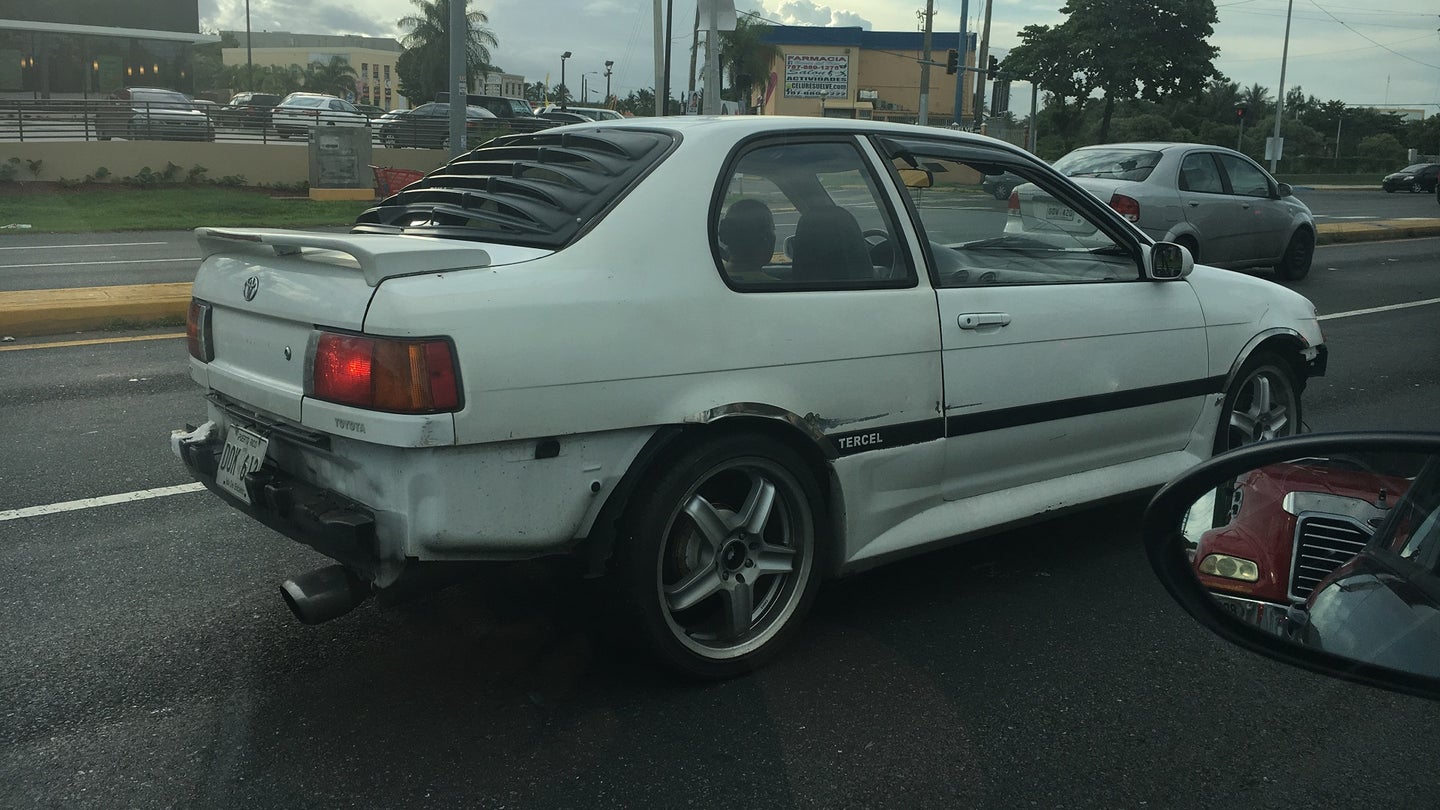Puerto Rico’s Reliance on Road System Is Harming Its Recovery
Blocked roads, gas shortages, and poor public transportation have hampered the distribution of food, water, and medical supplies in the U.S. territory.

As Puerto Rico continues to pick up the pieces from the devastation of Hurricane Maria, its recovery is being hampered by the island's strong reliance on cars and its highway system, Bloomberg reports.
Puerto Rico has the fifth-highest car ownership rate per capita in the world, after New Zealand, Brunei, Iceland, and Monaco, according to data from the World Bank. San Juan's bus system is woefully inadequate, and the Tren Urbano, Puerto Rico's rail service, is notorious for not going places that people actually want to go, such as Old San Juan and the Luis Muñoz Marín International Airport, as well as some highly populated suburbs that would benefit from the train.
As a result, Puerto Ricans rely heavily on their 2 million cars on an island slightly larger than Delaware. Older Japanese cars, long since discarded in the U.S. mainland, are extremely popular, being cheap to buy and affordable to maintain. But the extensive damage from Hurricane Maria has left numerous roads blocked and impassible. This has not only prevented Puerto Rican residents from getting places, but also hampered the distribution of aid, such as food, water, medical supplies, and fuel. Long lines exist at what few gas stations are open, between widespread power outages and not receiving fuel deliveries.
Once off the major highways, Puerto Rico's roads are narrow, twisty, and surrounded by lush tropical vegetation. That vegetation now covers the roads, and it doesn't take much to block them completely.
The Washington Post reports that "[Army Lt. Gen. Jeffrey] Buchanan will bring together land forces, including the Puerto Rico National Guard, to begin pushing into the interior of the island, where aid has been slowed by washed-out roads and difficult terrain."
This description sounds more like fighting a war than leading a relief effort. But the conditions across Puerto Rico, especially outside the cities, do resemble a war zone, and the military's efforts to get supplies there are as difficult as in a war.
Another factor is that while aid is coming in and trucks are ready to leave ports, few truck drivers are available, according to Jalopnik. Once again, blocked roads and fuel shortages have prevented many drivers from reporting to work. Many of them are also prioritizing taking care of their own families first, which is quite reasonable. But without drivers, the trucks can't deliver supplies, which means people can't get to work, further delaying relief. Private pilots are helping bring supplies to remote airstrips and take refugees out, reports The Daily Beast, but their efforts are also impeded by impassable roads.
Puerto Rico's roads, and the lack of alternatives to them, appear to be the main problem facing relief efforts right now. Even worse, these blockages are preventing Puerto Ricans from getting the supplies and road access they need to help themselves and accelerate relief efforts.
